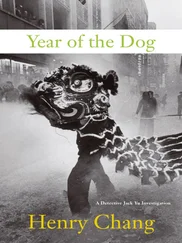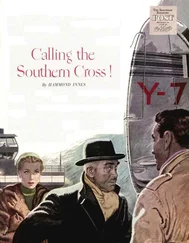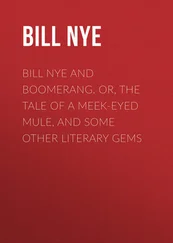Duke reached into his jacket.
The guard eyed the pack and let a smile tighten on his face.
He fit a cigarette between his lips. Duke struck a match, lit the guard’s and then his own. The cigarette crackled like radio air.

ELI BROKE TWO EGGS IN a little cup and with his long thin fingers, he scooped out the yolks. The strands shivered and dripped and he rubbed the yellow between his hands, then back through his hair. A prison trusty stood in the doorway of the bunkhouse, tugging on the straps of his dungarees with one hand, balancing his rifle with the other. Eli watched the trusty in the piece of mirror, his fat lips working into an angry bud.
Eli patted down the rest of his hair and wiped his hands on a rag. He slipped on his jacket, straightened out the lapels, then set his hat neat on his head. He gave himself one more look — narrow face, clear almond eyes, a spray of silver on his mustache. Eli sucked back on his teeth.
Outside, he could hear the inmates plucking their spades dully at the earth as a skin of red dust settled outside the bunkhouse.
The trusty cleared his throat. You ready?
Eli grinned, turning from the mirror.
Show on.
They walked through the prison farm, Eli in front and the trusty behind. Outside, the sky was wide and full, doming above the wire fencing. The cotton fields lay spread in dark tracts while the inmates stooped over in their rows, cutting the soil with their hoes, their leg chains twinkling.
They crossed to the laundry lines outside the administration building. The prisoners looked up from their washboards, cheeks flecked with soap, hands bleached and sudsy over the blue-black water. They pressed their cracked rutted faces against the glass. No one made a noise, only the crackle of soap sounding as they waited for Eli to pass.
At the gate the warden stood with his suit stiff and freshly pressed. Beside him was a man. He looked like an egg, round and pale and smooth except his nose, which was blistered and full of blood. The man was staring hard at Eli, the small muscle in his throat going up and down.
The warden sent the trusty away.
This the one you wanted?
The man unfolded a square of paper from his pocket.
You’re Eli Cutter?
He was surprised the man knew his name. Yessir, he said. That’s me.
Out of Natchez?
And happy to be here.
The man read aloud from his paper:
Cutter, Elijah Paul. Age, thirty-eight years; height, five feet eight inches; weight, 129 pounds; nativity, Adams County; complexion, mulatto; hair, black; eyes, brown; mole behind left ear; scar on the right thigh. Sentenced from Wayne County, October 29, 1929, for the crime of manslaughter; term, fifteen years.
The man looked up from the slip of paper.
The warden smirked. Well, not quite fifteen is it, Mr. Duke?
The man ignored him. Let me see your hands.
Eli rolled up his sleeves. His palms were dusty and cracked, but his fingers spanned out wide like a cellar spider, knobby at the knuckles but smooth and womanly down to the tips. He touched his thumbs together lightly.
That’s him, the man said. He reached into his jacket and handed the warden a thick envelope.
I trust this settles everything.
The warden smiled. He patted the envelope across his palm before tucking it under his arm.
He’s all yours, Mr. Duke, he said.
THEY DROVE FOR HOURS, NEITHER of them talking. Eli fought down the excitement in his gut. He gazed out at the surrounding country. The hills rolled past and in the distance there were clusters of houses — towns he’d spent years in. They flashed in some dark part of his brain — barrelhouses, hotels, barbershops, his arm around some young smiling thing, the two of them stealing out to the potter’s field, their naked bodies on the cold wet grass.
The man named Duke stopped the car at a clearing along the road. Out beyond the tall grass was the old colored church, burned-out and gutted. The walls were charred black and had fallen through in places, strands of wild millet growing through cracks in the floor.
We’re here, Mr. Duke said. He hefted up a small leather suitcase and carried it out with him.
Flies flicked around their eyes and nostrils, buzzing drunk and angry. They stepped over the smashed pews and collapsed roof, the wood groaning underneath them. There were chalk lines scratched into a piece of wall, and empty bean tins on the floor. The stink of shit hung humid in the air.
They climbed up to what had been the pulpit and the man pulled the cloth from off the organ. With the heel of his hand, he wiped down the bench.
Have a seat, he said.
Eli sat down and Mr. Duke lifted up the fall board. The keys were clean and white.
Been a long time, Eli said.
Mr. Duke opened the case. He lifted up what looked like a phonograph and pointed the horn at Eli. He flicked a switch and there was a grinding noise. He flicked it again and the noise evened out.
Play something for me, he said.
Boss?
I want you to play a blues for me.
Eli set a finger on a key. It was cold and foreign.
Go ahead, Mr. Duke said.
Eli rolled up his sleeves and knuckled his fingers, trying to rub the buzz out of his joints. He floated his big hands above the ivory, the cords tightening into a claw. The pads of his fingers touched lightly over the keys; they were cold and smooth and sent a shiver through him like a sword.
The pedal clunked into its place. Eli touched the first note. Soft. Then he touched it again, letting it ring out. His mind burned. He closed his eyes and struck. A chord boomed beneath his hands. His heart was beating. He let the sound flare then cool. Something in his throat unhitched. Another chord. Then another. Beneath him, the organ trilled. He felt its air against his face. His heart fired in his chest.
When Eli had finished, Mr. Duke switched off the machine and folded the horn back into its case.
Marvelous, Duke said. Simply marvelous. You’re as good as they say.
Mr. Duke placed the fall board down and sat beside Eli on the bench. His large belly strained against the buttons of his shirt.
He rubbed his thick palms against the knees of his pants. Eli could smell him from where he sat, the stink of mold in his clothes.
Mr. Duke placed his hand on Eli’s shoulder and the man’s grip tightened.
I am starting a traveling musical act and I’ve been looking for a Negro to play the piano for me. Thirty dollars a week. Thirty dollars and your freedom.
Eli sat there stunned. His head was swimming and he had to brace himself against the bench to keep from falling over. Eli began to laugh, shaking his head and cupping his palms over his face.
Mr. Duke handed Eli a sheet of paper and showed him where he could put his mark. They shook hands and Mr. Duke counted out a hundred dollars in crisp new bills.
There’s a town in Calhoun County by the Skuna River called Bruce. A colored woman by the name of Lucy Quinn runs a hotel out there. The Hotel Beau-Miel. You take this money, get yourself a nice suit and a meal, and meet me there in two weeks.
Eli folded the bills together and tucked them into his pants pocket.
In two weeks? What’re you going to do till then?
He watched Mr. Duke slip the paper with Eli’s name into his case, then secure the two brass latches over the lid. He hefted it up with one arm and started for the door.
With his free hand, he gestured to the burned-out walls of the church.
Why, Mr. Cutter, someone’s got to find something for you to bang those magnificent hands on.

THE JOSTLING ON THE BUS kept the sleep from settling. His eyes stung and his groin itched. The other passengers were asleep. Eli could hear them snoring, making low wet sounds, dreamy half words. The country spread black against the windows. Here and there he could make out the reddish glow of tramp fires through the pines. He closed his eyes and half expected to open them up again to his bunk back at the Farm and smell the stale sweat and manure hanging in the air.
Читать дальше













